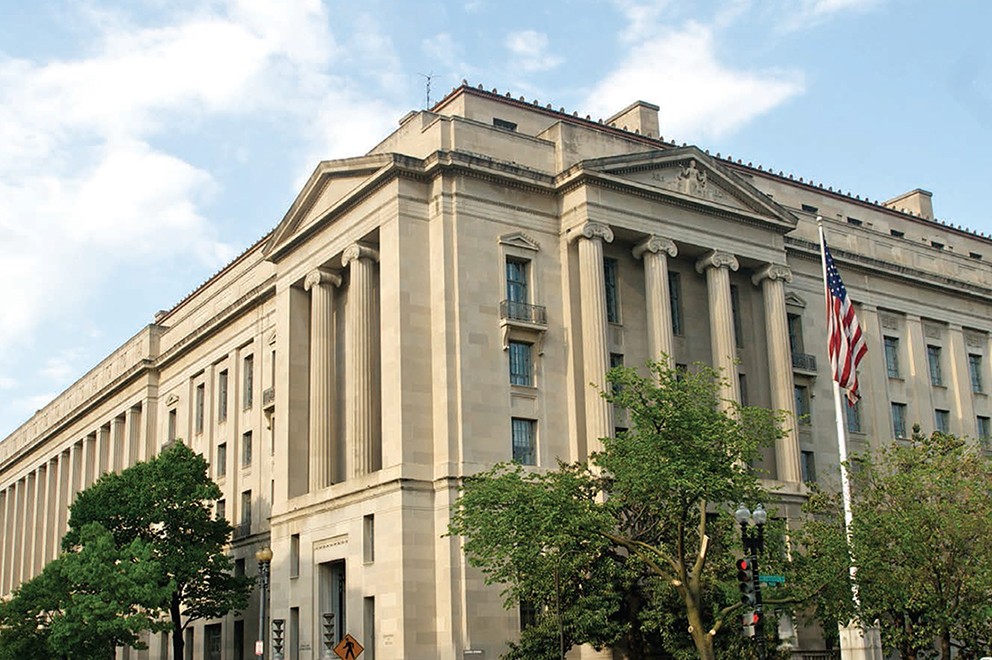

FCPA Restart & Latin America
What the DOJ’s new FCPA guidelines mean for Latin American business.
BY MATTESON ELLIS
After a four month pause, on June 9, 2025, the Trump Administration Department of Justice (DOJ) resumed U.S. Foreign Corrupt Practices Act (FCPA) enforcement with guidelines (FCPA Guidelines) for go-forward investigations and enforcement. The memorandum, issued by Deputy Attorney General Todd Blanche, narrows priority areas of focus for new cases in a way that places some forms of Latin America business directly in the crosshairs.
To be sure, for years Latin America has been perhaps the most important region for FCPA cases. Between 2018 and President Trump’s FCPA enforcement pause in February 2025, about 40% of corporate FCPA enforcement actions involved misconduct in Latin America. Fifty percent of FCPA monetary fines and penalties collected during the same period can be attributed to settlements that involved misconduct in Latin America. And a third of the individuals charged for FCPA violations were from Latin America. The new FCPA Guidelines suggest that Latin America will remain centerstage.
The Guidelines provide that, when deciding whether to pursue a case, DOJ will consider a list of non-exhaustive factors, each relevant to Latin America:
Total Elimination of Cartels and Transnational Criminal Organizations (TCOs). Furthering the Trump Administration’s campaign against cartels, organized crime, drug trafficking, and human smuggling, the FCPA Guidelines tie FCPA investigations to misconduct that “(1) is associated with the criminal operations of a Cartel or TCO; (2) utilizes money launderers or shell companies that engage in money laundering for Cartels or TCOs; or (3) is linked to employees of state-owned entities or other foreign officials who have received bribes from Cartels or TCOs.” This focus directly implicates business in Mexico, Central America, Colombia, and other areas in Latin America where cartel and organized crime risk can be prominent.
What would such cases look like in practice? Perhaps a local official has ties to a cartel and pressures a company to make an improper payment to a cartel member at his behest. Perhaps a business pays a shell company as a way to convey improper payments both to government officials and cartel members. Maybe a logistics company pays bribes to a customs official to expedite clearance of goods, and the goods include arms or precursors for fentanyl products trafficked by a cartel.
U.S. Company Competitivity. The FCPA Guidelines state that DOJ will have a particular interest in misconduct by non-U.S. companies and will consider the effects on competition for U.S. companies when foreign companies bribe: “[C]ompanies that bribe foreign officials to obtain business can put their law-abiding competitors, including U.S. companies, at a serious economic disadvantage.” The Guidelines go so far as to assert that non-U.S. companies have often engaged in the most noteworthy bribery schemes: “The most blatant bribery schemes have historically been committed by foreign companies, as reflected by the fact that the most significant FCPA enforcement actions – measured both by the scope of misconduct and the size of the monetary penalties imposed – have been overwhelmingly brought against foreign companies.” The Guidelines state that FCPA enforcement will now be a way to “vindicate” the interests of U.S. companies. Prosecutors will therefore consider whether the alleged misconduct deprived U.S. entities of fair access to compete or resulted in economic injury to them.
The effects of bribery on competition in Latin America are well established. In the 2024 Latin America Corruption Survey, 41% of respondents believe that their companies have lost business to competitors that make illicit payments. As a result of dynamics like these, the considerable number of Latin American and other non-U.S. companies subject to U.S. jurisdiction could find themselves under scrutiny.
National Security. The FCPA Guidelines tie enforcement to U.S. national security interests. Prosecutors will prioritize investigations involving key sectors like “defense, intelligence, or critical infrastructure” where bribery of corrupt foreign officials results in threats to U.S. national security. Prosecutors will consider whether foreign bribery is impacting strategic U.S. business advantages in areas like “critical minerals, deep-water ports, or other key infrastructure or assets.”
This focus is particularly relevant for Latin America, where mining of critical minerals is common, the U.S. government has expressed strategic interests in places like the Panama Canal and certain regional ports, and President Trump has shown an overriding concern with China’s influences. To the extent bribery of Latin American government officials raises national security concerns in areas like these, one would expect DOJ to take a keen interest.
Serious Misconduct. FCPA prosecutors will prioritize cases of “serious misconduct” over “misconduct involving routine business practices or the type of corporate conduct that involves de minimis or low-dollar, generally accepted business courtesies.” As such, one would expect the DOJ to be less interested in situations where companies and individuals use hospitality or small charitable donations to influence foreign officials and more focused on cases with “substantial bribe payments, proven and sophisticated efforts to conceal bribe payments, fraudulent conduct in furtherance of the bribery scheme, and efforts to obstruct justice.” Latin America is not lacking in instances of grand corruption and complex schemes involving multiple actors. The history of FCPA enforcement has exposed multiple examples involving important companies like Odebrecht, Glencore, and Siemens. Indeed, the 2024 Latin America Corruption Survey found that 46% of respondents say corruption is a “significant obstacle” to doing business in the region, suggesting that pressures to bribe involve more than just de minimis or low-dollar shakedowns.
Absence of Local Enforcement. FCPA prosecutors will consider the likelihood that a foreign law enforcement authority will investigate the same conduct. To the extent this occurs, it appears the DOJ will choose to take a back seat. If not, one would expect DOJ to have more investigative interest.
In Latin America, anti-corruption enforcement by local authorities has generally been lukewarm at best, down today from the height of the Car Wash investigations that touched most countries a decade ago. The 2024 Latin America Corruption Survey found that, while anti-corruption laws are perceived as more effective now than they were in 2020, 60% of respondents still say such measures are ineffective in the country where they work. Considering this, one should not expect local enforcement in the region to serve as a replacement for FCPA enforcement. This is yet one more indicator that Latin America will continue to be a focus of FCPA investigations and enforcement.
Matteson Ellis is a member of Miller & Chevalier, where he founded and leads the firm’s Latin America practice. He is recognized as the leading expert on FCPA in Latin America and authored The FCPA in Latin America: Common Corruption Risks and Effective Compliance Strategies for the Region
This article was written for Latinvex. © Copyright Latinvex
RELATED ARTICLES












